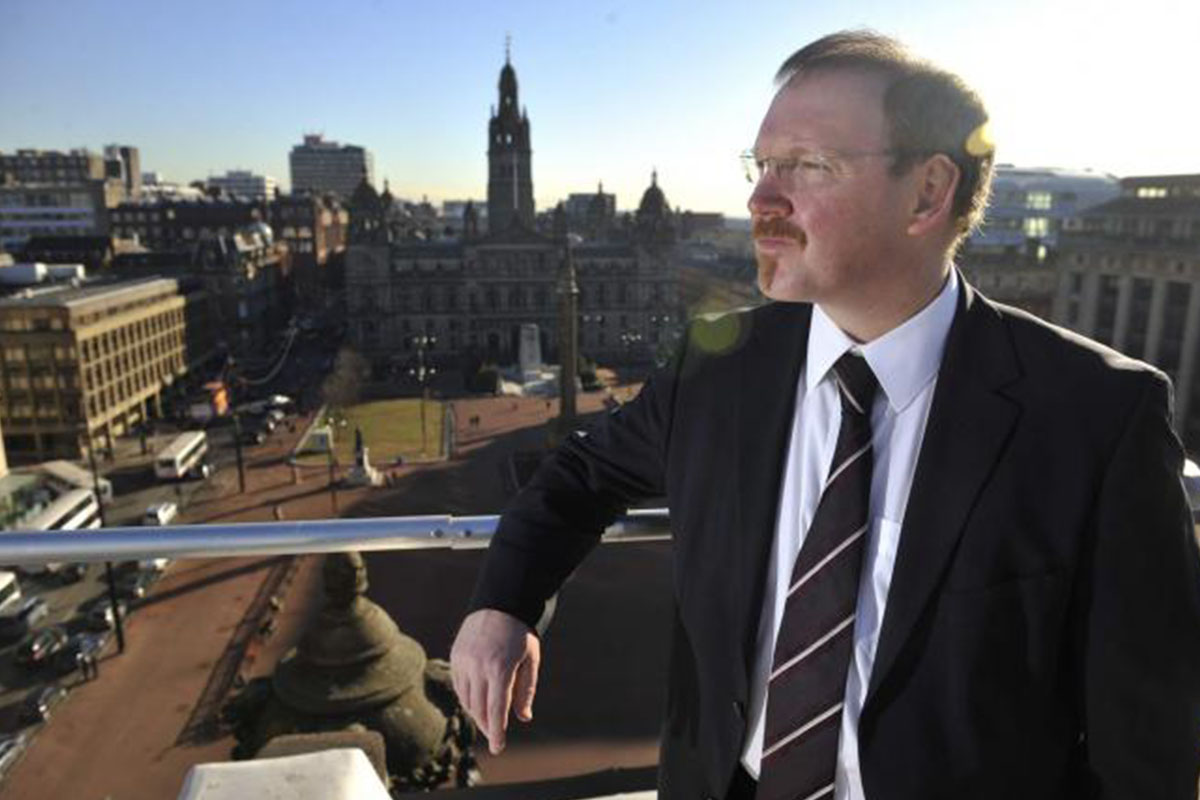Universities are beacon of economic promise
22 June 2022
There are moments when your inadequacies are laid out firmly before you and there is no alternative but to admit defeat. Listening to a researcher in the University of Glasgow’s quantum and nano technology team explain his technique for squeezing light was one such moment. I have no doubt he was making best efforts to reach down to my level but we simply didn’t have the time to bridge the gulf in understanding.
It was during an impressive tour at the official opening by Professor Sir David McMillan of the University’s new £118m Mazumder-Shaw Advanced Research Centre (ARC). The first in a stream of new facilities planned for the University’s campus expansion on the former Western Infirmary site. The ARC represents a fascinating experiment in inter-disciplinary research with initial themes including digital chemistry, creative economies and cultural transformations, and the quantum and nano technology theme that scrambled my brain.
Named after Glasgow graduate John Shaw and Kiran Mazumdar-Shaw who donated $7.5million to the building’s development, the research centre garnered warm praise from Professor Sir David for the progressive creativity involved in bringing research together from across the whole campus and opening up the ground floor for access to the general public. Asking Giovanna Eusebi to operate the catering facilities right next to the front door should certainly help attract local residents in for an early look.
Nor is the building simply a fancy office. Nearly a quarter of the 16,000 sq m is lab space and the ARC will also be home to one of the UK’s largest extended reality suites. The idea of bringing arts and humanities disciplines together with science and technology research will be supported by a series of events to encourage new collaborations. I was told there are also plans under development to research the impact the ARC has on the quality of the University’s research outputs.
And those outputs are already reaching new heights given the recently reported results from the 2021 Research Excellence Framework (REF). Carried out every six or seven years by the UK higher education funding bodies, the REF is designed to assess research quality. All universities in Glasgow made progress up the Times Higher Education ranking of the REF results. This can only bode well for Glasgow’s future prosperity as more talent is drawn into our city, more businesses invest in research and development and more new companies cluster around our improving educational institutions.
The University of Glasgow climbed 11 places to joint 13th with over 93% of the submitted research being rated world leading. Read through the University’s own statements on its REF success and you will find that it discreetly avoids mentioning that it now has the highest ranking in Scotland, stepping above the University of Edinburgh in joint 15th place. Some notable performances include 4th place for clinical medicine, 4th place for agriculture, food and veterinary sciences, 5th for mathematical sciences and 5th for law.
Momentum is also building for the next phases of the University’s £1 billion campus redevelopment with two other buildings under construction; the Institute of Health and Wellbeing and the Adam Smith Business School. The next step will be the development on Church Street of an Innovation Zone aimed at providing facilities for commercial exploitation of research and the building of new enterprises. That similar investments are being made at the Universities of Strathclyde, Glasgow Caledonian and the West of Scotland can only be good news for the whole Glasgow city region. These investments will make a difference to our economy.
One message that I did successfully receive during my encounter with my quantum researcher was the impact that the ARC was already having on his motivation. Rescued from a dustier corner of the older facilities and welcomed into the very high-quality ARC surroundings, he said that he felt that perhaps he was considered just that bit more important by his institution. That has to be a good start.


